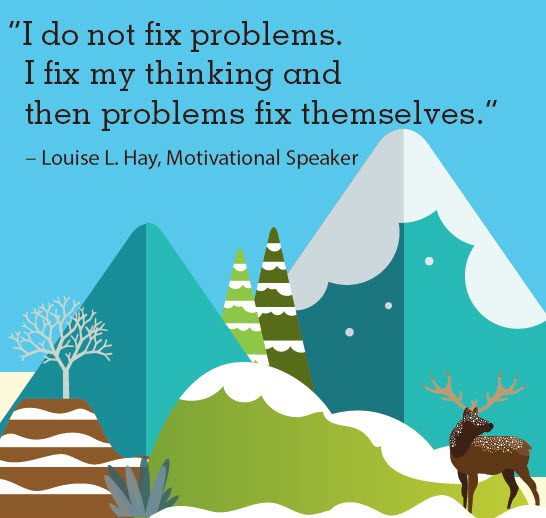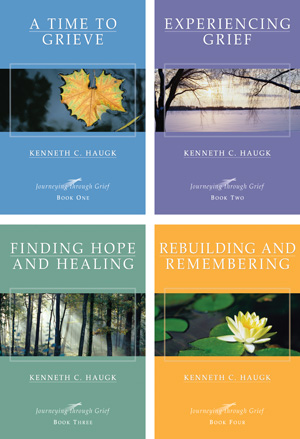Recovery In Action | Winter 2020
Thoughts on Thoughts
By Jill Davis, CPFS
 We live in an information-rich era where it seems like there is more available to us than we can assimilate and process in a lifetime. What I’ve seen, as we are bombarded with this veritable storehouse of data, news, social media and feeds coming at us from all directions, is that there is a wealth of opinions and feelings (many of which are negative) that form as people measure what they are seeing and hearing along with what they know. It’s no wonder that for many, our minds swirl and overflow with automatic thoughts that seem impossible to turn off at any given moment!
We live in an information-rich era where it seems like there is more available to us than we can assimilate and process in a lifetime. What I’ve seen, as we are bombarded with this veritable storehouse of data, news, social media and feeds coming at us from all directions, is that there is a wealth of opinions and feelings (many of which are negative) that form as people measure what they are seeing and hearing along with what they know. It’s no wonder that for many, our minds swirl and overflow with automatic thoughts that seem impossible to turn off at any given moment!
Affirmation Corner
I cannot change another person. I let others be who they are, and I simply love who I am.
Filling my mind with pleasant thoughts is the quickest road to health.
I am comfortable looking in the mirror, saying, “I love you, I really love you.”
I am willing to learn.
The more I learn, the more I grow.
Affirmations shared from Louise Hay, You Can Heal Your Life.

Book Recommendation By Noleta Golden
“Journeying Through Grief” Series
By Kenneth C. Haugk
I recently read four short books that were very helpful to me. My niece and her husband were killed in a car accident in October, and I’ve been dealing with a lot of grief and pain. The four books in the “Journeying Through Grief” series have been a comfort and a blessing to me. In fact, I have read all of them over and over again.
The books are called A Time to Grieve, Experiencing Grief, Finding Hope and Healing, and Rebuilding and Remembering. The author, who is a pastor and psychologist and whose wife also died in 2002, emphasizes that when we lose a loved one, grief is a natural, normal, and necessary response. (He also founded a non-profit organization called Stephen Ministries that help people care for each other.) He writes, “If you cut your finger, you bleed. If you lose someone you love, you grieve.” He also states, “You cannot not grieve.”
The author stresses that “no one else can tell you how to grieve.” Even in families who are coping with the loss of the same person, each individual grieves in his or her own way. This was encouraging to me because I thought I was grieving “wrongly.” It was good to realize that crying (even a lot of crying) is normal and okay. In fact, the author encourages having a good cry – as often as you need to. Other family members who are grieving may cry more or less, or for a shorter or longer period of time, but that doesn’t mean that they loved the departed one more or less – just that we are all human and we are all different from one another. Even the same person may deal with one loss differently than with another loss.
 Being Trauma Informed
Being Trauma Informed
Information taken from “Beyond Consequence’s” by Heather Forbes
By Sharline Thompson
Understanding Challenging Behavior or Dysregulation
When an individual exhibits challenging or negative behaviors it is important to see the situation from their perspective.
Instead of focusing on the behavior and how to change it, focus on…
- What is driving the behavior?
- What can I do to improve the relationship in this moment?
All behavior is a form of communication. Challenging or negative behaviors may tell us that:
- Stress level is too high/overwhelmed
- Recognize that there may be low tolerance for both good and bad stress
- Feelings of fear/unsafe
- In a state of hopelessness, helplessness, and/or powerlessness
- Inability to regulate/need help to regulate
- Has an immediate need that is not being met
Recovery Resources
- Get Hooked Into Local Support with National Alliance on Mental Illness – Western Slope or email at namiwesternslope@gmail.com.
- Colorado Health Partnership has a very informative website. The website is primarily for Medicaid members, but non Medicaid individuals can access a vast amount of information including over thousands of articles on health and mental health issues.
- The Depression and Bipolar Support Alliance website is a great place to start. You can spend days browsing its wellness guides, support resources like Facing Us Clubhouse, a wellness toolbox, mood management tools, and even online support groups. Yes, you can talk to other peers via their website.
- SAMHSA’s National Center for Trauma-Informed Care (NCTIC) is a technical assistance center dedicated to building awareness of trauma-informed care and promoting the implementation of trauma-informed practices in programs and services.
- Recovery website with lots of information www.recoveryhope4all.com.
- Voices4Hope is a place for teenagers and young adults with mental health conditions to find resources and stigma busting information.
- A web site for those who hear voices www.hearingvoicesusa.org
- Colorado Health Partnerships/Achieve solutions. Whether you need help finding services, a life event or want to assess your concerns, you will find this website very helpful.